As we look ahead to the official start of spring on March 19, some of you might be wondering for the second year in a row: What happened to winter in New York City?
Barring a big surprise, this winter will go into the books as the ninth least-snowiest winter on record for Central Park in more than 100 years, since data tracking started in 1869.
We had a few cold snaps and saw temperatures sag as low as 17 degrees. That’s certainly enough to qualify as “winter” for some people, but for most of us, especially those who grew up in the tri-state area, winter is synonymous with snow. Or, at least, it was.
Our Central Park snow total for this winter stands at 7.5 inches. Compared to last season’s record-setting low of 2.3 inches, that may look like a major improvement. But when compared to seasonal averages, it is nowhere near normal.
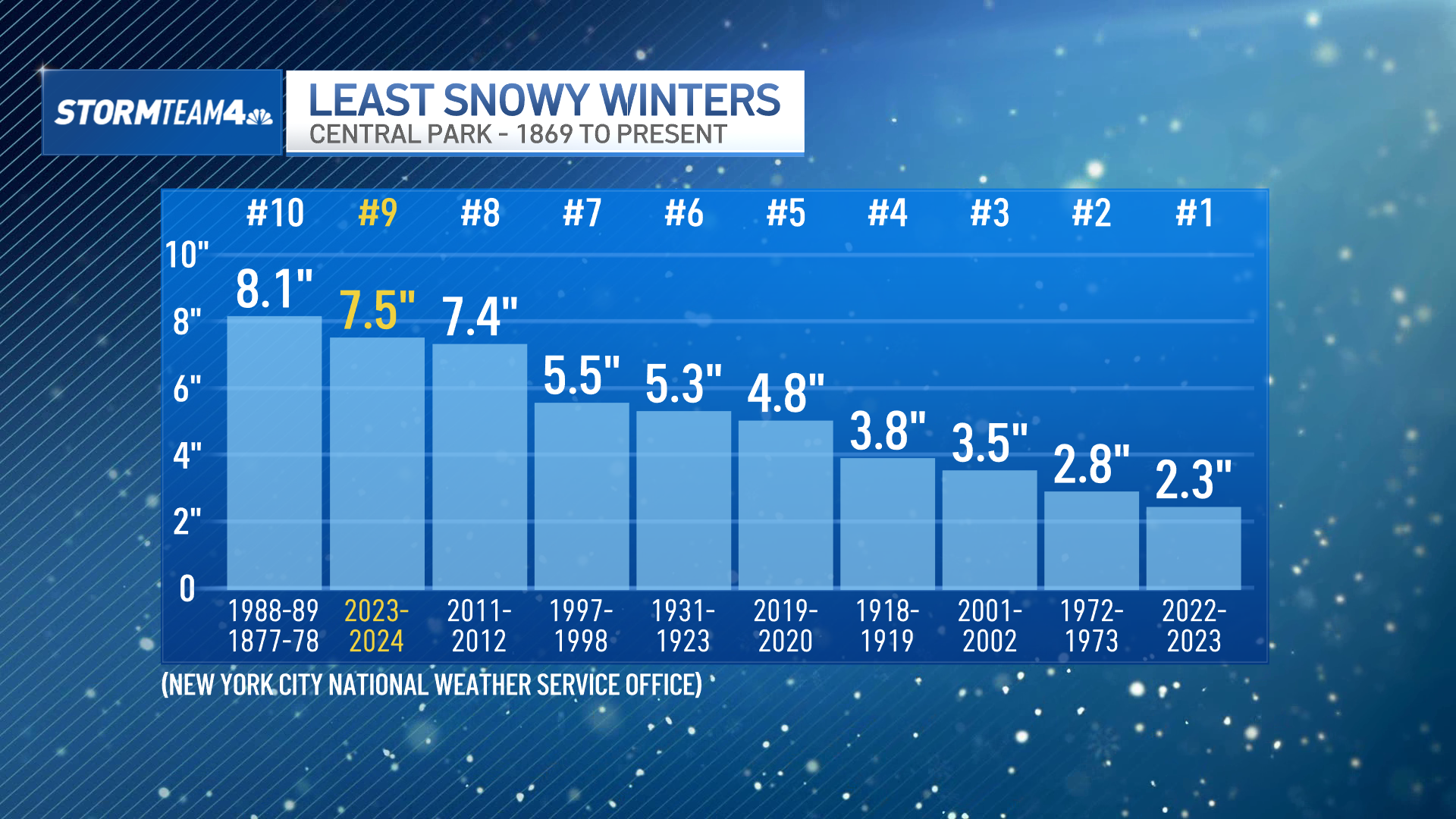
On average, NYC sees around 29.8 inches of snow in a season. But we have seen as much as 75.6 inches a season (1995-96).
So even though we managed to triple last season’s abysmal snow total, our 7.5 inches is still only about one-quarter of the climate’s “normal” value.
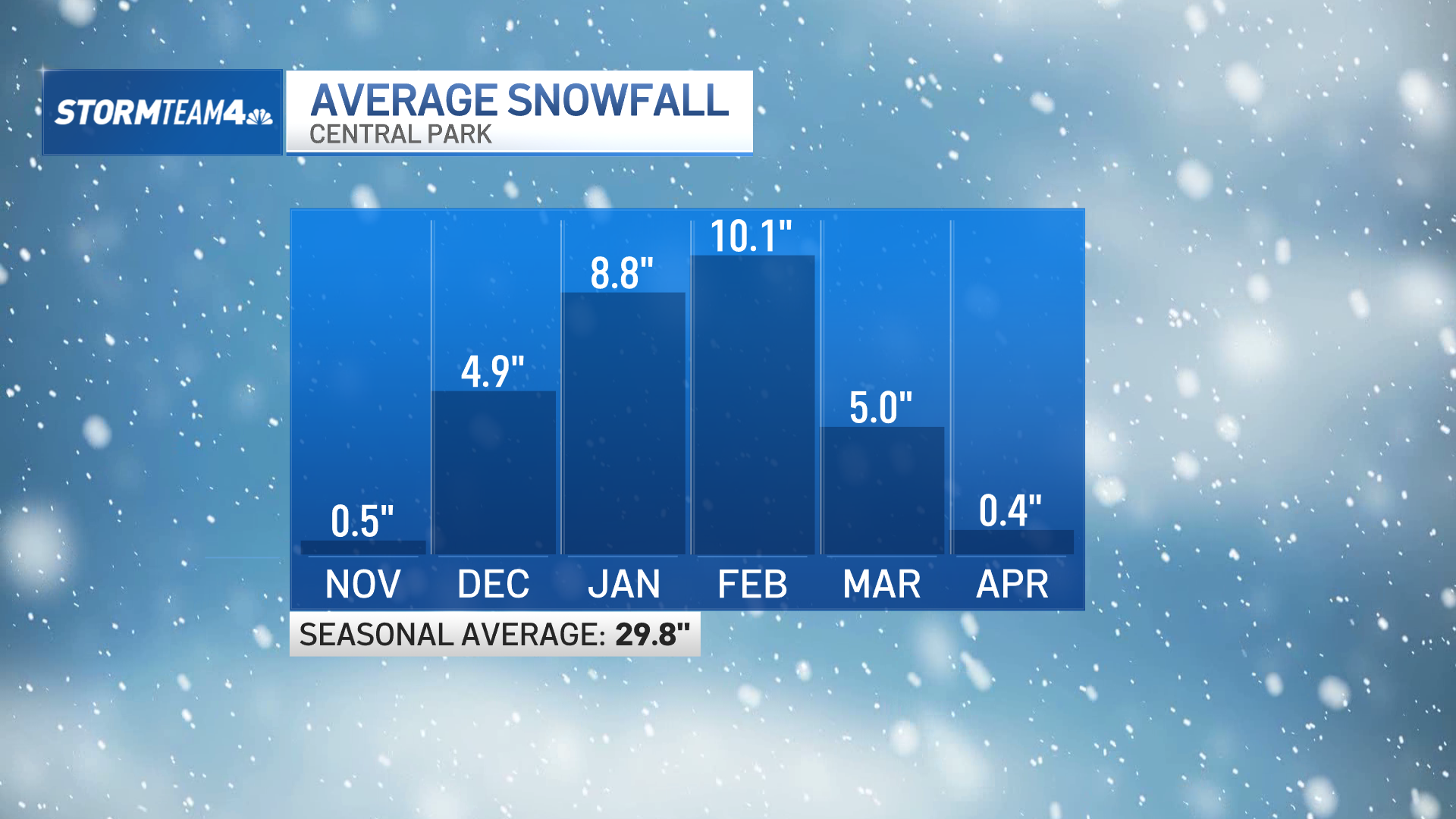
In Central Park’s weather records, which date back to the 1860s, the 2023-2024 season has amassed the ninth-lowest snow accumulation. And within the top nine least snowy winters, five of these record-setters have come since the turn of the century, including three just within the last five years.
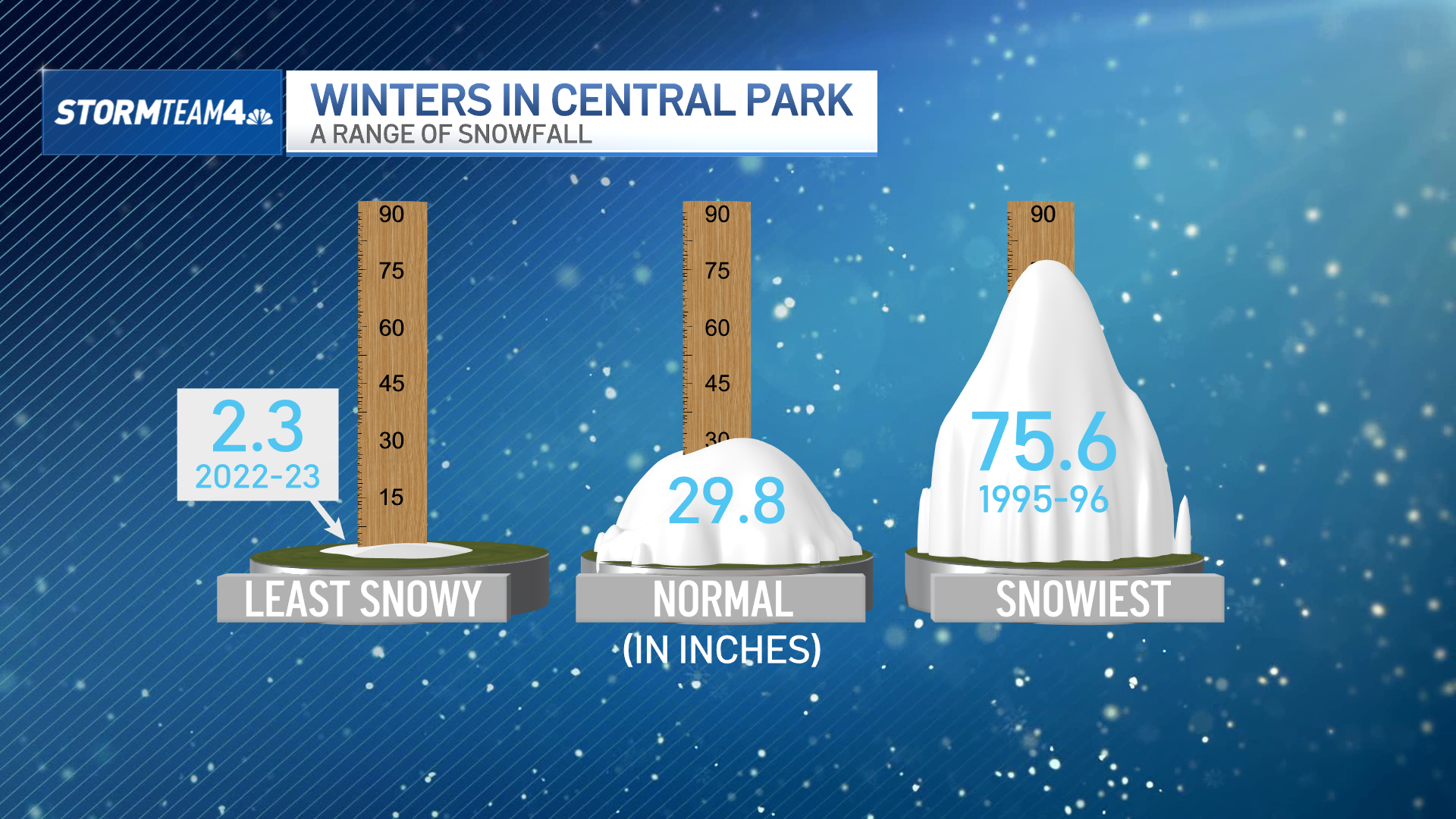
Global warming
The bottom line behind our anemic winters: Earth is getting warmer. Globally, 2023 was the warmest year in recorded history. The same is true for New York City. But no season has seen the impacts of global warming more than winter. This can perhaps best be seen when looking at our daily low temperatures.
In New York City, the average nightly low temperature in winter is 30.4 degrees. The coldest nights happen in January and February, when average lows fall into the 20s. As you might expect, January and February are also the months of the year when we typically pick up the bulk of our snow.
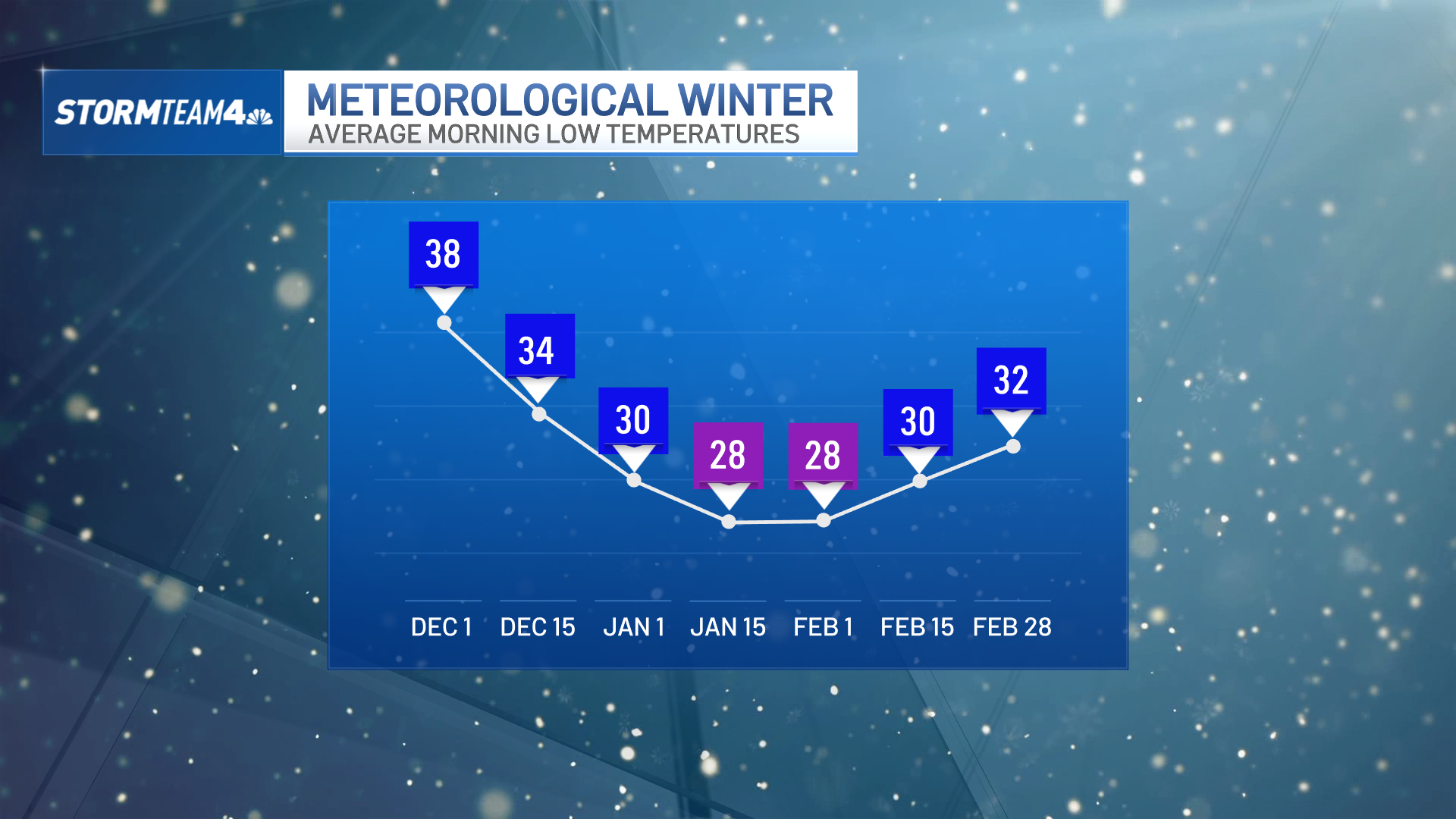
This winter, the average low temperature was 35.2 degrees, nearly 5 degrees warmer than the average. It was also well above 32 degrees, the freezing point of water, indicating that most days the weather never got cold enough for accumulating snow to be possible.
Exceptionally warm low temperatures are a recurring theme in our recent nearly snowless winter seasons. It makes sense. If temperatures regularly aren’t cold enough for snow, we should expect to see a lot of snow.
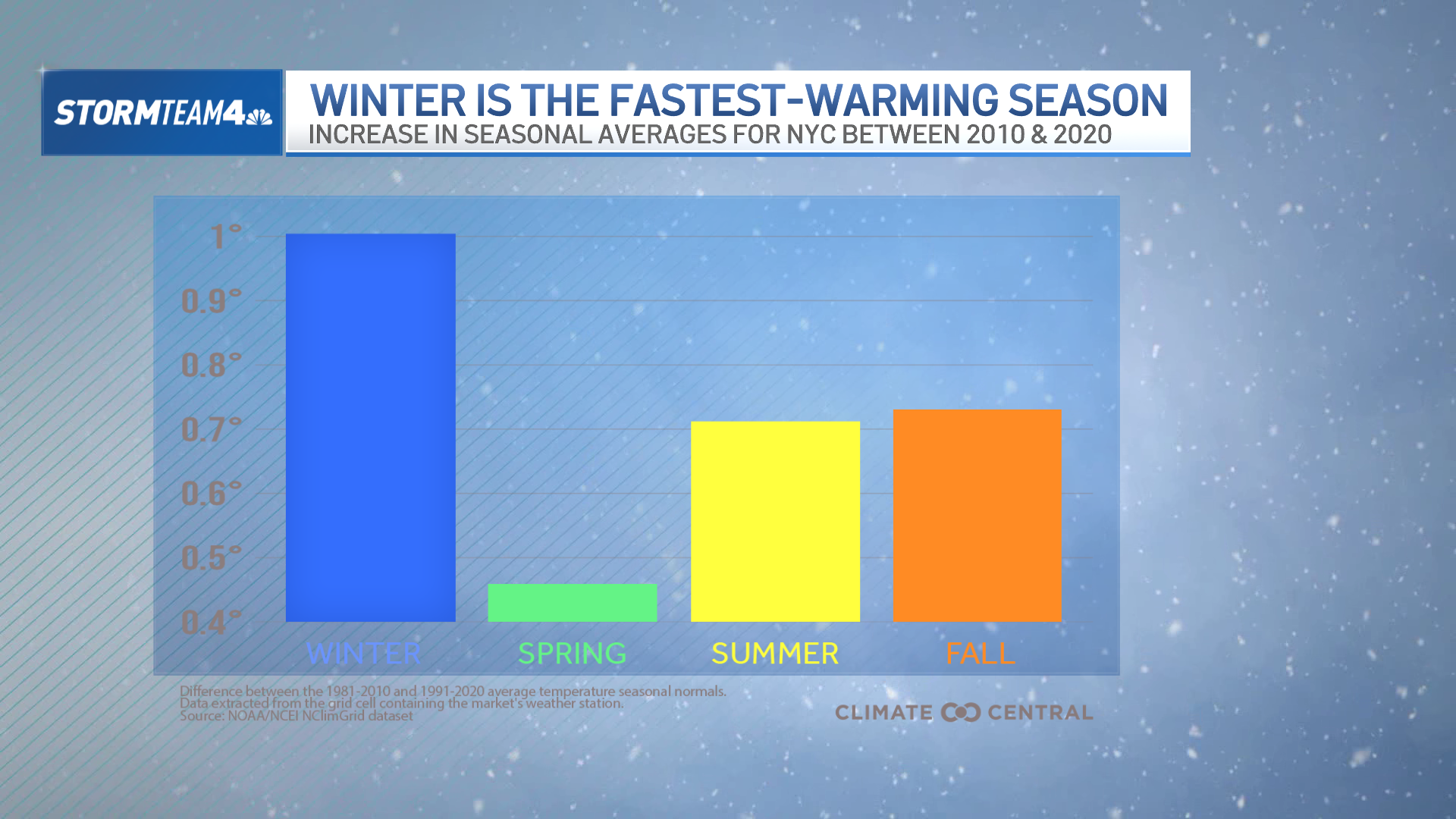
Will it ever snow again?
However, this does not mean all hope for future snow is lost. On paper, warmer air does not seem like it would be conducive to producing snow. But warmer air is capable of holding much more moisture than cold air. When a slug of high-moisture air does collide with a frigid arctic blast, we can rack up some truly impressive snow totals. It’s just that these episodes will be more and more infrequent as our atmosphere continues to warm.
Central Park’s biggest single-day snowfall came in winter 2015-2016, a season that also carried some of our mildest low temperatures.
So is snow a thing of the past in NYC? Of course not. Conditions have to be right. We are likely to see more infrequent snowstorms — but when they do happen, some impressive snow totals are still possible.
Our biggest storm yet could still be ahead of us.

0 Comments